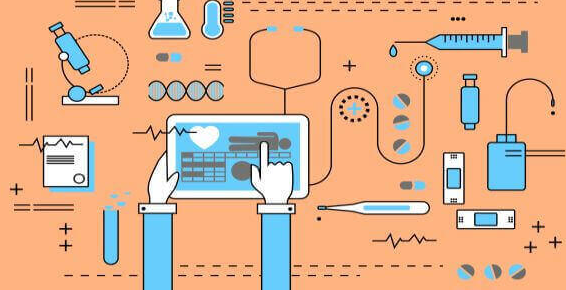Introduction:
In recent years, the healthcare industry has undergone a remarkable transformation with the emergence of online universities and the digitization of medical records. This technological revolution has enabled unprecedented accessibility, efficiency and security in managing patient information. Online colleges offer specialized programs that provide professionals with the skills they need to deal with the complexities of medical record keeping. This article examines the impact of online universities on medical records, highlighting the benefits, challenges and future prospects of this evolving field.
1. The emergence of online universities in the medical field:
With the growing demand for health professionals skilled in managing health records, online universities have emerged as valuable institutions for professional training. These institutions offer flexible study options that allow students to study at their own pace and convenience. Online colleges provide students with knowledge of electronic health records (EHR), health information management (HIM) standards, and privacy regulations through a comprehensive curriculum. Through the use of technology, these universities offer interactive learning experiences such as virtual labs and case studies to prepare students for real-world scenarios.
2. Benefits of an online college for health record keeping:
Online colleges revolutionize the way healthcare organizations handle medical records and offer many benefits. First, these institutions allow professionals to acquire knowledge without being constrained by geographic restrictions. Students can access courses and materials from anywhere and build diverse learning communities. Additionally, online programs often offer a cheaper option compared to traditional colleges, lowering the financial hurdles for aspiring professionals.
Second, online colleges emphasize hands-on skills and focus on hands-on training in EHR systems and medical data analysis. This enables graduates to seamlessly adapt to the ever-evolving medical environment. Additionally, these programs often include internships and hands-on experiences that provide students with valuable insight into the industry.
3. Challenges and Solutions in Teaching Online Health Records:
While online universities have many advantages, they also present unique challenges. A major stumbling block is the need for reliable Internet access and technical infrastructure. Participation in online programs is limited because not all regions or individuals have access to a stable internet connection. Agencies and policy makers must work together to address this problem by expanding broadband access and providing technical support to underserved areas.
Another challenge is maintaining the integrity and security of medical records in the digital realm. Data breaches and data theft are major problems in healthcare and require rigorous cybersecurity measures. Online universities should prioritize educating students on ethical practices, privacy, and compliance with relevant regulations to ensure the security of medical records. 4. Future Prospects and Conclusions:
The future of online college and health record keeping is bright.
In summary, the rise of online universities is revolutionizing health record keeping, offering flexible educational options, hands-on training, and access to aspiring professionals. However, to participate equally and protect sensitive health information, Internet access and data security challenges must be addressed. As the healthcare industry evolves, online universities will play a key role in educating skilled professionals who can use technology to improve patient care and outcomes.
